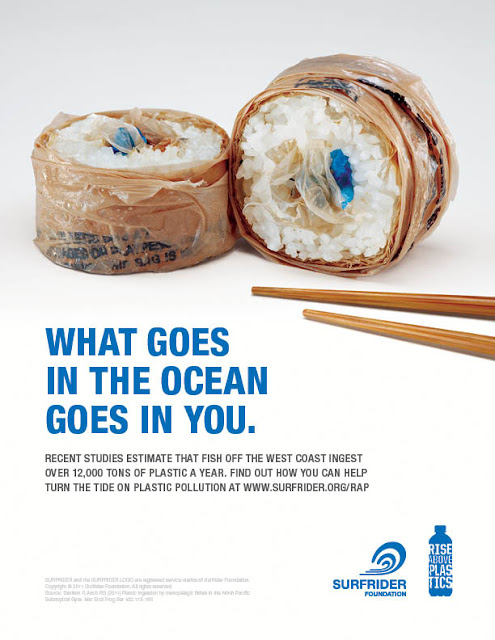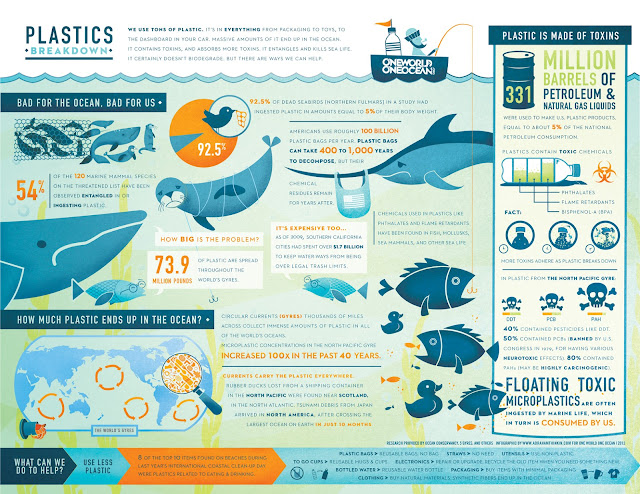Monday, March 4, 2013
Remember That Ocean is Important
Everyone knows that water is a vital element of our daily lives. With more than 8,500 miles of shorelines, 2.1 million acres of estuaries and 30% of the state's land cover consisting of wetlands, Florida's relationship to water is vital to the prosperity of the state. Florida Southern College students are aware of the importance of clean water and they are looking for ways to share their knowledge with everyone else by raising awareness of ocean pollution. Currently the class of Free Enterprise students is participating in a project called O.B. Ocean Pollution to engage in projects that empower others by reducing, reusing, and recycling. The idea of the project comes from Enactus organization, which is a community of student, academic and business leaders committed to using the power of entrepreneurial action to enable human progress.
The message we want to bring across is that 80% of pollution to the marine environment comes from the land. Water pollution is the 2nd worst type of pollution after air pollution. Unsafe water causes 4 billion cases of diarrhea each year, and results in 2.2 deaths, mostly of children under five. People need to know that with small changes in their regular behaviors they can improve a whole lot. Here are just few of many things that individuals can do in order to help reducing ocean pollution:
1. Using a reusable tote or other bag at the grocery store;
2. Drinking water out of glass or other non-plastic container;
3. Recycling plastics whenever possible;
4. Never littering and always disposing of trash properly.
Visit this website and sign up for the local beach cleanup days: http://www.oceanconservancy.org
Wednesday, February 20, 2013
Tuesday, February 19, 2013
Monday, February 18, 2013
O.B Ocean Pollution Video
One of the group members of Enactus Organziation at FSC created a YouTube video. Check out these devastating scenes at the beaches created by the pollution...
Saturday, February 9, 2013
What Causes Ocean Pollution
1. Land-based pollutants: Waste originating
on land such as plastics and electronics account for 80 percent of all marine
debris.
Clean World
No matter where you’re going, just remember to give some thought to our good friend Mother Nature. Ocean pollution, more than most of us realize, is a very large and very preventable problem. Too much of the world fails to understand, fails to care about, or simply oversees the dangers of pollution and the small and simple things we can do to help alleviate or even diminish pollution’s effects. One of the keys to alleviating the damage of ocean pollution isn’t necessarily keeping our beaches and the ocean itself clean, but keeping our entire world clean.
Even Better, you can attend an International Coastal Cleanup Day which is an amazing event that removes literally tons of plastic from coastlines and waterways around the world every year.
What You Can Do to Reduce Ocean Pollution
Be
informed and aware of your impact on the environment. Everything you do
and use has some bearing on your surroundings. Making intelligent
choices and changes in the manner of your everyday living is perhaps the
most effective solution for ocean pollution.
- Reduse plastic bags and recycle plastics. Don't throw them away.
- Cut down on the use of toxic household cleaners.
- Don't throw trash when you visit the beach, or when you go anywhere else, for that matter.
- Make sure your vehicles and boats do not leak oil on the road or on the water. When it rains, this oil will of course be washed away and eventually, via streams, rivers or drains, find its way into the ocean.
- For the same reason, do not flush medications and chemicals down the drain.
- Cut down on the use of chemicals and fertilizers in your garden or on your farm.
- Volunteer and participate in environment clean-up drives.
Subscribe to:
Comments (Atom)






